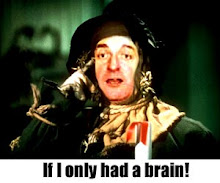Stardust Memories
Though not nearly as funny as 'Annie Hall', or as coherent as 'Manhattan', Woody Allen's 'Stardust Memories' is very much of a piece with those two movies. The story, such as it is, concerns a filmmaker, Sandy Bates (as usual, not very dissimilar to Allen), who attends an out-of-town retrospective of his work and remembers past loves while struggling with new ones.
The initial train carriage scene and the general storyline suggest Allen's beloved Bergmann (particularly 'Wild Strawberries'), but it is Allen's other love, Fellini, who truly inhabits every frame. The open beach shots, the surreal interludes incorporating Allen young and old, the filmmaker as hero; this is '8 1/2' retold, American-style. Sadly although the lightness of tone is there, the depth is not, but it says something of Allen at this period that even when he was being self-indulgent, as he very definitely is being here, there is still much to admire. The constant film within film and dream within dream framing, is calculatedly artsy, but it somehow works. The jokes too, when told, are good; standouts include Sidney Finkelstein's rampaging Hostility tracked by dogs through the woods, and a 'Man with Two Brains' skit a full three years before Steve Martin's movie. The real standout of the movie though is Gordon Willis's cinematography.
Willis, memorable for his work on the 'Godfather' movies and Allen's own 'Manhattan', uses black and white in a way all of his own, simultaneously recalling 40's Film Noir work by the likes of John Alton, and Renaissance canvasses by Caravaggio. It is simply stunning. A nightclub scene where Allen, Jessica Harper and John Rothman talk around a table will always represent for me what beauty Cinema is capable of. The look of the movie raises it to a new level and makes it required viewing for anyone interested in Cinematic Art.
Willis isn't the only one to add beauty to proceedings though. Playing Allen's mentally disturbed lost love, Dorrie, Charlotte Rampling is another part of the movie to lift it to a new level. At one point Allen recalls an epiphanic moment when he simply watched Rampling reading on the floor. We are treated to this image too, but it soon becomes evident that it is not to Allen that Rampling smoulders, but the camera itself. She is self-consciously lending her glamour to the screen, being a star, allowing herself to be looked at. It is a fetishistic moment, no doubt, but it is Allen's attempt at creating cinematic iconography and it gives us an inkling of his intentions with 'Stardust Memories'; it is Film itself that he is celebrating/investigating. That he is only partly successful is a shame.
A minor Allen work then, but a great Willis one.
P.S. Look out for an early appearance by Sharon Stone, and Data (Brent Spiner), from Star Trek, also seems to be there.
Labels: Film, Woody Allen


0 Comments:
Post a Comment
<< Home